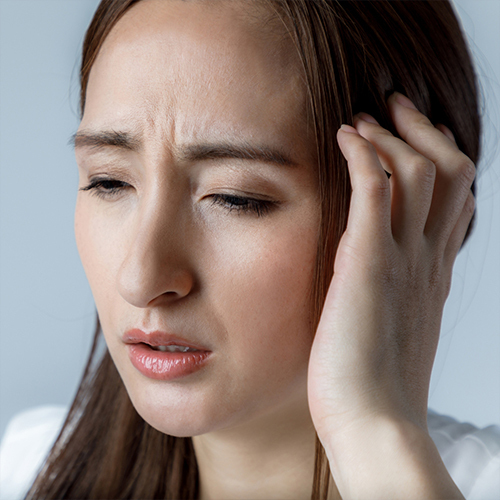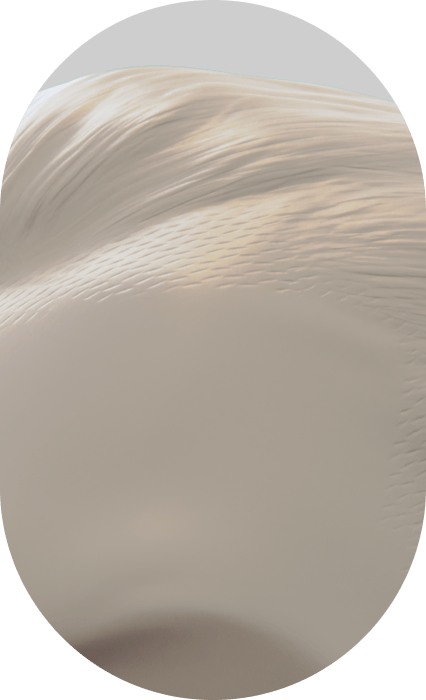Anemia
Anemia is a medical condition that causes iron deficiency in your bloodstream. Such a condition saps the strength of your cells, including those of your hair follicles. If you’re experiencing iron deficiency hair loss from a lack of iron in your blood, a top hair restoration doctor in Manhattan, like Dr. Gary Linkov of Linkov Hair Surgery takes steps to increase your blood iron levels to combat anemia hair loss and restore a full head of healthy hair. Call today for a consultation and to start your hair loss anemia treatment.

Can Anemia Cause Hair Loss?
If you have anemia, your body doesn’t supply enough healthy red blood cells to sufficiently transport oxygen to your organs. A specific type of anemia, called iron-deficiency anemia, is the most common type of this blood disorder. It results in multiple symptoms, including hair loss.
Iron is a key ingredient in the production of hemoglobin, a crucial protein in red blood cells. Hemoglobin promotes health by carrying oxygen to your body’s cells. Poor iron levels limits cell growth and regeneration, which also impacts the cells of your hair.
If you suffer from thinning hair, seek out a New York City hair loss specialist for a definitive diagnosis. An early diagnosis leads to a more effective iron deficiency hair loss treatment. Dr. Gary Linkov, a dedicated expert in hair loss prevention and restoration at Linkov Hair Surgery, delivers the best hair loss treatments for men and women.

Is My Hair Loss Because of Iron Deficiency?
Hair loss is a natural process, but if you notice excessive hair shedding, it may mean that you’re suffering from an underlying condition that’s causing your excessive hair loss. Anemia hair loss, losing your hair because you’re anemic, often accompanies other symptoms of iron deficiency, such as:
- Traditional male or female pattern hair loss
- More hair than usual found in your bed, shower drain or hairbrush
- Dry hair that easily breaks, also a sign of either poor hair hygiene or environmental factors
- Gradual loss of hair pigmentation, also a common sign of aging
- Thinning hair strands
- A lack of energy, fatigue, loss of appetite, pale skin, constantly cold hands and brittle nails
- Diffuse or uniform hair loss on your scalp
- Unusual shortness of breath
- Damaged hair, leading to excessive hair loss
- Unusual shortness of breath
- Losing the natural glow of your hair
- Bald spots on your scalp, in advanced cases
At the Manhattan hair transplant office of Linkov Hair Surgery, a top doctor specializing in hair loss treatment accurately diagnoses the root cause of your condition. Using a patient-centered approach, your hair restoration specialist delivers the best price and most effective results to address your hair problems.
Should I Worry about Iron-Related Hair Loss?
Your hair plays a role in your image of yourself. Women and men invest in keeping their hair beautiful. Hair loss caused by anemia can become emotionally and psychologically traumatic. Reasons to be concerned about iron-related hair loss include:
- Hair loss could lower your self-esteem and self-confidence
- Hair loss caused by iron deficiency compounds the problems caused by anemia
- Hair loss can lead to stress or depression
- Hair loss interferes with your social life and relationships
Many women dream of beautiful flowing hair, and many men feel younger and more vibrant with a full head of hair. Seek out the best hair loss anemia treatment in New York City to restore a healthy head of hair. If you’ve noticed increased hair loss, consult the best doctor to see if you have a diagnosis of iron deficiency.

Who’s at Risk for Iron-Related Hair Loss?
While anyone suffering from anemia can experience iron-related hair loss, certain individuals are more likely to experience the condition. People more at risk of iron-related hair loss include:
Women Women of child-bearing age lose a lot of blood during their menstruation. This loss of blood may cause low iron levels, sometimes leading to iron deficiency anemia
Vegetarians People who follow a vegetarian or vegan diet are at a higher risk of iron deficiency anemia. Premenopausal vegetarian women are especially at risk of iron-deficiency hair loss
Exercise enthusiasts An exercise regimen can harm your body if you overdo it. Internal blood leaks from damaged joints or tissues may eventually lead to anemia and by extension, hair loss
Frequent blood donors Over-enthusiastic blood donors can deplete their iron stores, leading to anemia and anemic hair loss. The pre-donation finger prick checks your hemoglobin count
Your board certified cosmetic surgeon at Linkov Hair Surgery in Manhattan relies on the latest hair restoration technology and procedures. To combat iron deficiency hair loss, you may benefit from complementary cutting-edge procures such as hair cloning, laser therapies, stem cell therapy and exosome therapy.
What’s the Best Treatment for Anemic Hair Loss?
Hair loss due to anemia is reversible. Your doctor may prescribe different treatment options after determining your diagnosis. Your hair loss anemia treatment may involve:
Doctor tests After reviewing your medical history and discussing Your doctor performs a blood test to check your iron levels, including for serum iron, transferrin saturation, total iron binding capacity, ferritin and full blood count
Dietary changes A well-balanced diet ensures you get adequate amounts of iron each day. Add iron-rich foods to your diet, such as meats, spinach and broccoli, as well as foods high in vitamin C, such as citrus, strawberries and tomatoes
Biotin treatment Top doctors in the field of hair restoration may recommend a treatment of biotin, a form of Vitamin B that’s soluble in water. Biotin stimulates hair growth and follicle strength. Your NYC doctor injects biotin in liquid form directly into hair shafts. You can also take biotin in pill form as a supplement
Iron supplements The most effective treatment for iron-deficiency anemia may be the use of iron supplements. If you treat your iron deficiency, your body corrects its anemia hair loss
Hair loss medications Hair loss treatments — including minoxidil, finasteride or spironolactone — may speed up your hair’s growth cycle. These medications help restore lost hair as you work on replenishing your body’s iron store.
Treating your digestive system. An effective way to remedy iron-deficiency is by treating digestive issues through a better diet or medications that improve iron absorption in your body.
Platelet-rich plasma (PRP) injections If changing your diet doesn’t increase the iron in your blood, an effective treatment for hair loss is to get PRP injections. Your hair restoration specialist first harvests plasma from your blood and then injects concentrated platelets into specific areas of your scalp.
Surgical hair loss treatment Women may benefit from techniques such as follicular unit extraction or follicular unit transplantation. These surgical techniques can restore lost hair permanently.
Your hair restoration specialist at NYC’s Linkov Hair Surgery guides you through the treatment options to choose the most suitable approach. Anemia hair loss treatment corrects your hair loss from iron deficiency, boosting your self-esteem. When your hair comes back fuller and more completely, you may feel like you’ve got your life back. Contact the best hair restoration team in New York City today to enjoy effective, leading-edge hair loss treatments.
Linkov Hair Surgery
150 E 56th St, #1A
New York, NY 10022
(212) 970-9404

